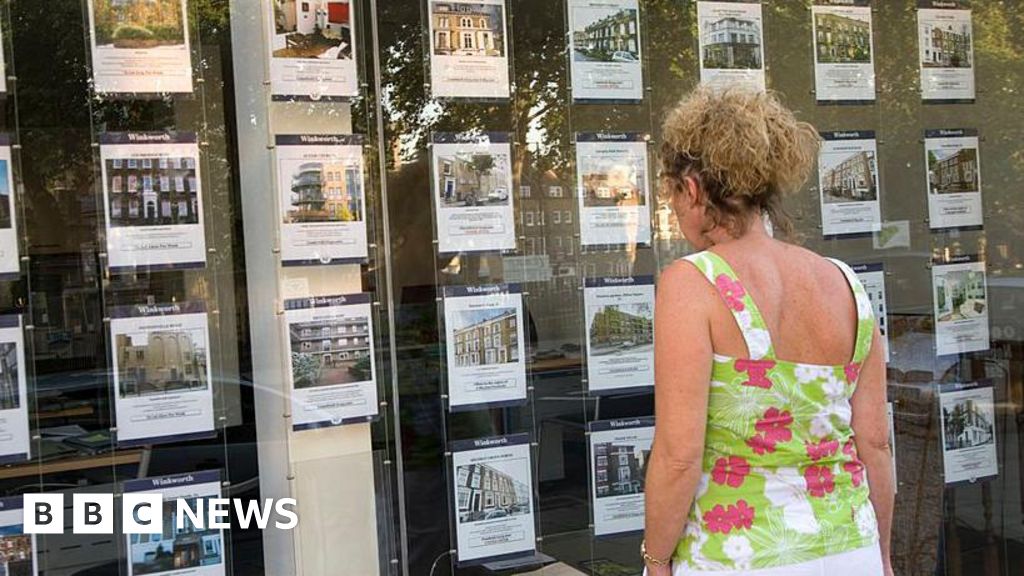People buying a house for the first time are spending about 37% of their take-home pay on mortgage payments, according to the Nationwide.
The figure is well above the long-term average of 30%, the building society said, making it tougher for new buyers to afford a house.
House price growth picked up in the year to July as wages rose, it added.
Prices increased by 2.1% over the year, the fastest pace since December 2022.
Some people were feeling more confident about getting a mortgage as their pay packets went up, Nationwide chief economist Robert Gardner said.
But relatively high mortgage rates and affordability issues also acted as a brake for prospective buyers.
The typical monthly mortgage payment remained “quite high”, Mr Gardner said, especially compared with the 28% of their income first-time buyers were spending before the Covid pandemic.
It meant fewer people were able to afford properties, he said, especially as the amount of deposit needed was “high by historical standards”.
The average price of a house rose to £266,334 last month. However, prices are still below the all-time highs recorded in the summer of 2022.
Part of the reason for the jump in prices was weak growth at the same time last year, Mr Gardner said, but added that people were also feeling more confident as their wages rise in real terms.
Although pay growth has been slowing, it is still outpacing rising prices.
The speed of pay growth was one of the economic factors the Bank of England would have considered at its interest rates meeting on Thursday, when it chose to cut rates to 5%.
Rates had been at 5.25% – the highest level for 16 years – which pushed up repayments for people with tracker mortgages, and borrowing costs for those trying to secure or renew mortgage deals.
Higher mortgage rates have been part of the reason many people have struggled to afford to buy a home.
One of the main reasons house prices are so high in the UK relative to wages is that “supply of housing has not caught up with demand for quite a while”, Mr Gardner said, which has also had a knock-on impact on pushing rental prices up.
The new government has pledged to deliver 1.5 million new homes in England over the next five years, in part by overhauling the planning system, and letting developers build on some greenbelt land.
Nationwide, one of the biggest mortgage lenders in the UK, bases its figures on house prices on its own lending.
The statistics do not include buyers who purchase homes with cash, or buy-to-let deals. Cash buyers account for about a third of housing sales.
The Bank of England’s base rate informs what High Street lenders set mortgage rates at.
Alice Haine, personal finance analyst at Evelyn Partners, said Thursday’s rate cut “could add serious momentum to the market if buyers and sellers who have been waiting patiently in the wings for borrowing conditions to improve are now spurred into action”.

